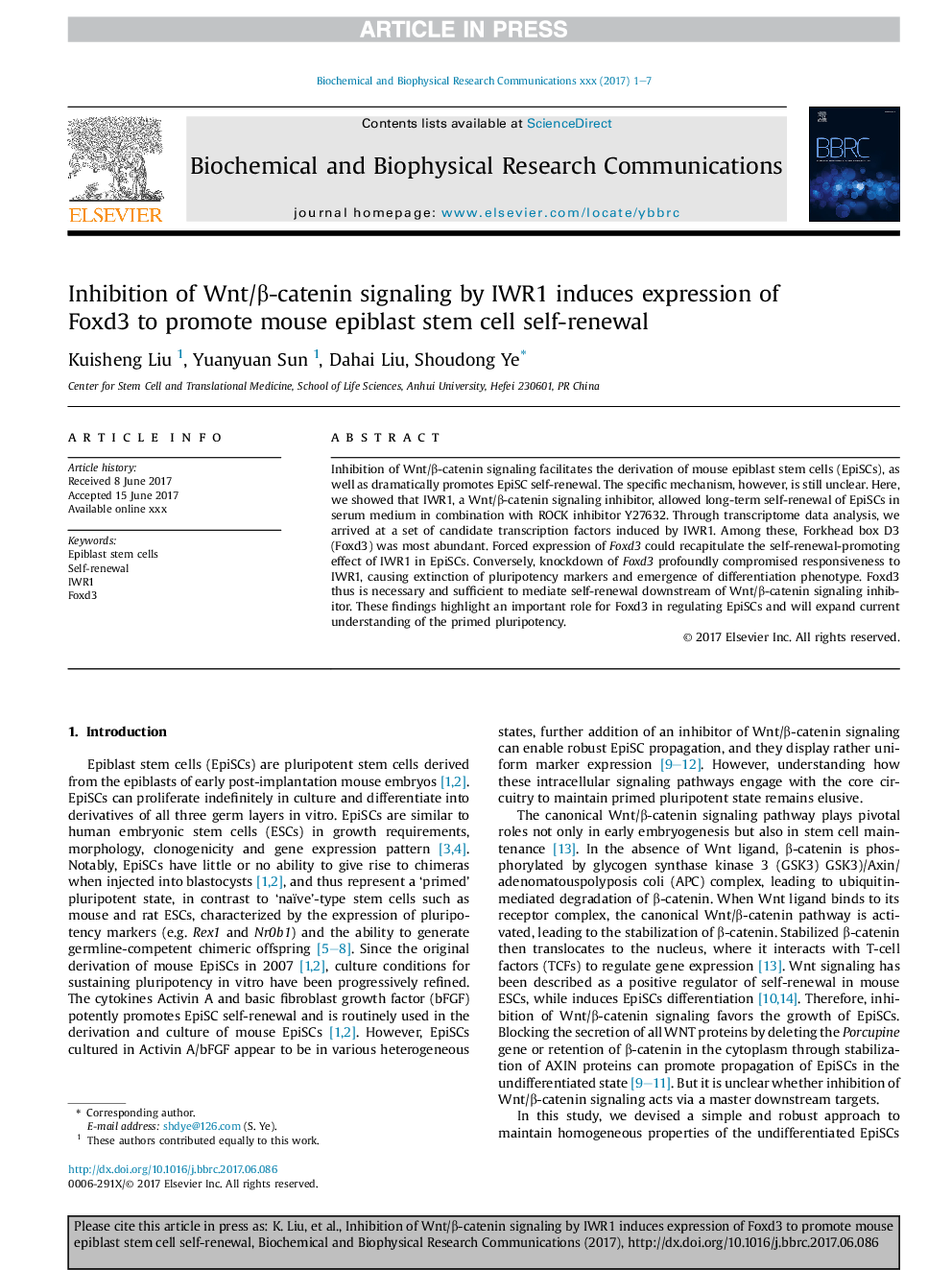| Article ID | Journal | Published Year | Pages | File Type |
|---|---|---|---|---|
| 5505096 | Biochemical and Biophysical Research Communications | 2017 | 7 Pages |
Abstract
Inhibition of Wnt/β-catenin signaling facilitates the derivation of mouse epiblast stem cells (EpiSCs), as well as dramatically promotes EpiSC self-renewal. The specific mechanism, however, is still unclear. Here, we showed that IWR1, a Wnt/β-catenin signaling inhibitor, allowed long-term self-renewal of EpiSCs in serum medium in combination with ROCK inhibitor Y27632. Through transcriptome data analysis, we arrived at a set of candidate transcription factors induced by IWR1. Among these, Forkhead box D3 (Foxd3) was most abundant. Forced expression of Foxd3 could recapitulate the self-renewal-promoting effect of IWR1 in EpiSCs. Conversely, knockdown of Foxd3 profoundly compromised responsiveness to IWR1, causing extinction of pluripotency markers and emergence of differentiation phenotype. Foxd3 thus is necessary and sufficient to mediate self-renewal downstream of Wnt/β-catenin signaling inhibitor. These findings highlight an important role for Foxd3 in regulating EpiSCs and will expand current understanding of the primed pluripotency.
Keywords
Related Topics
Life Sciences
Biochemistry, Genetics and Molecular Biology
Biochemistry
Authors
Kuisheng Liu, Yuanyuan Sun, Dahai Liu, Shoudong Ye,
